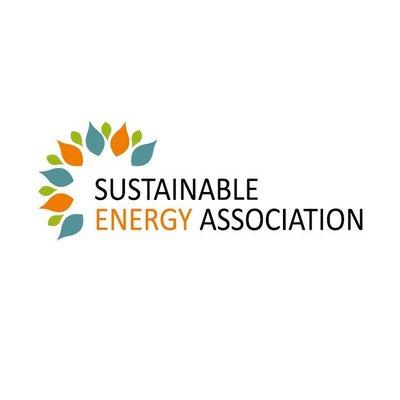The SEA’s Girvin Gill highlights the importance of Energy Efficiency
“Energy efficiency isn't just about cutting costs; it's a linchpin in the UK's ambitious journey towards Net Zero.”

By Girvin Gill, The Sustainable Energy Association
Empowering the Future: Unveiling the Crucial Role of Energy Efficiency in National Security and Net Zero Aspirations
In a government and political context increasingly fixated on energy security, the recent King's Speech and its accompanying legislation have failed to provide a spotlight onto a crucial aspect —energy efficiency. Even beyond the immediate concerns of energy bills, energy efficiency emerges as an unsung hero, providing a robust, long-term defence against rising costs. Let's delve into why this factor deserves a prime spot in our energy strategy and where the Government have missed opportunities to implement it in.
A Shield Against Soaring Costs
Whilst present discourse often centres around new oil and gas licenses, their impact on curbing consumer bills or fortifying the UK's energy security is limited. The real game-changer is Energy efficiency- where by reducing the total energy we need to use we safeguard ourselves for the future. By optimising energy use across sectors, we not only insulate ourselves from future bill hikes but also pave the way for sustainable, cost-effective energy practices.
Beyond the environmental implications, energy efficiency serves as a catalyst for economic growth. Stimulating investment in industry, it creates a ripple effect, fostering innovation and job opportunities. Moreover, as homes and workplaces become more energy-efficient, the benefits extend to improved comfort and well-being, creating a healthier and more productive society.
Energy efficiency isn't just about cutting costs; it's a linchpin in the UK's ambitious journey towards Net Zero. By prioritising efficiency measures, we actively contribute to reducing our carbon footprint, aligning with global efforts to combat climate change. It's a win-win, fortifying our energy security while championing environmental sustainability.
The King's Speech rightly underscores the challenges posed by volatile international energy markets. To truly address this, our government must expand its priorities to a two-pronged approach, placing energy efficiency at a prominent place in our national energy strategy.
Missed Opportunities and Policy Uncertainty
In the pursuit of a sustainable future, it is imperative for the Government to foster collaboration with regional and local governments, citizens, and the private sector. Timely consultations and transparent policymaking are vital and the gaps in policy must be addressed if we are to deliver our increasingly pressing Net Zero targets. Without clarity, uncertainty can ensnare the industry and consumers, leading to unproductive rumours and a lack of progress. A year after the Sustainable Energy Association published its ‘What Next for Heat and Buildings Policy?’ report, a number of policy voids remain. Policy voids which exist as prime opportunities to implement energy efficiency into a wider energy strategy.
We are still waiting for news of the Future Homes & Buildings Standard technical consultation. The Standard is undoubtedly the flagship policy, setting a vision of what our buildings could look like in a Net-Zero nation. Delays take us further away from being able to deliver what is required, as industry looks to the Government for regulation and guidance.
The consultation on Minimum Energy Efficiency Standards (MEES) was released in January 2021 and clear notice is essential in its success. Each year raises questions around the Private Rented Sector on how the future will look for tenants. The PMs recent reversal on the question of legally binding targets was a regrettable blow. Plans and timeframes for tightening standards in the PRS and the implementation of similar legally binding targets in other sectors, such as non-domestic buildings, are an essential piece in paving the way for buildings fit for the future.
The Future Homes & Buildings Standard and MEES are both significant pieces of government policy. The decision on these matters holds immense significance for many people, as they directly impact upon the quality of their lives. It is crucial for the Government to provide clarity and transparency to address the concerns of all stakeholders involved.
A missed opportunity and a policy priority is addressing the UK’s housing stock which is one of the oldest and worst insulated in Europe. The Government and Industry must work together to form a definitive National Retrofit Strategy, setting out the policies and programmes required to improve the energy efficiency of our buildings, with realistic timescales for implementation, and which places energy efficiency at the heart of the UK’s Net Zero target.
Charting the Path to Net Zero
One thing is certain, climate change is happening now, and the need to reduce our carbon emissions and take action to adapt to its devastating impacts, remain a challenge for the industry and Government. The journey towards a Net Zero future requires concerted efforts from everyone, with the Government playing a pivotal role by shaping clear and collaborative policies. Both energy efficiency and energy security exist on different sides of the same coin and play an imperative role in a net zero future. Decisive action today will pave the way for a greener and more resilient future for generations to come.
